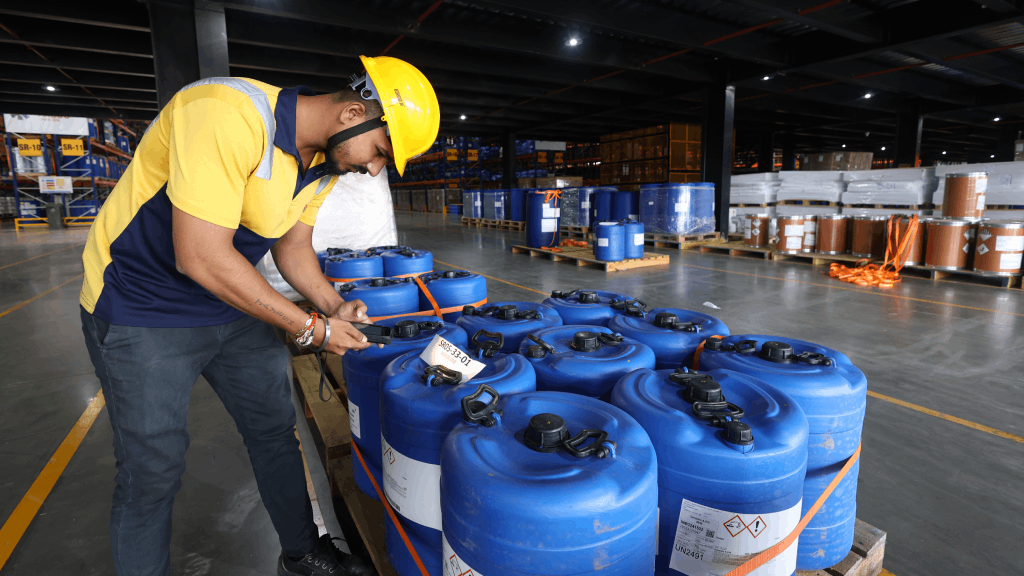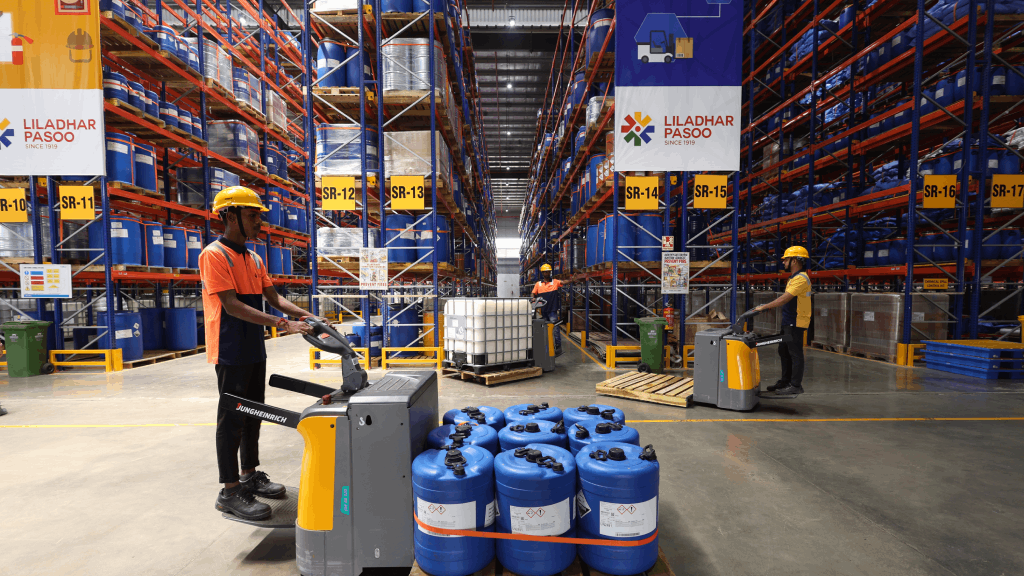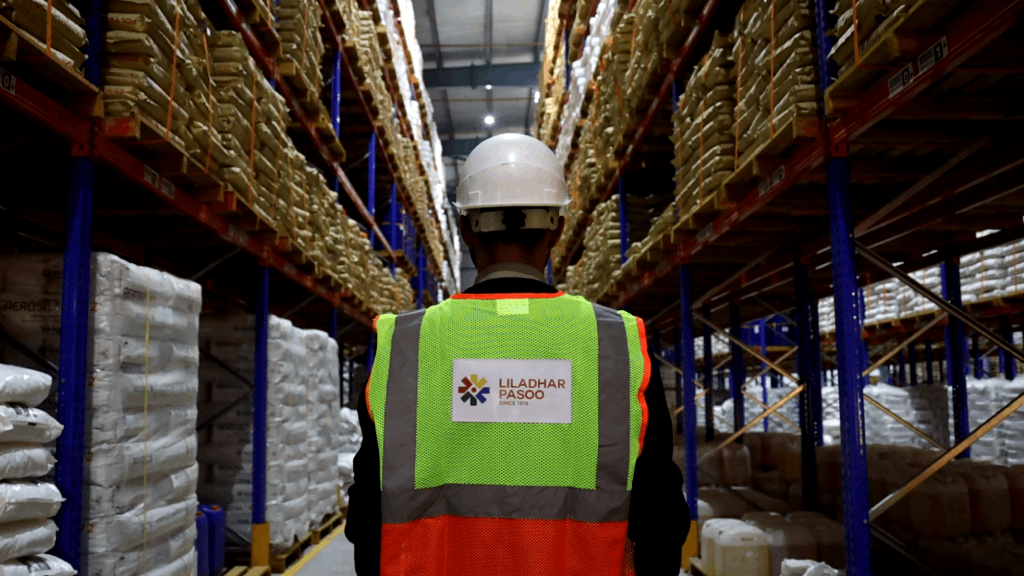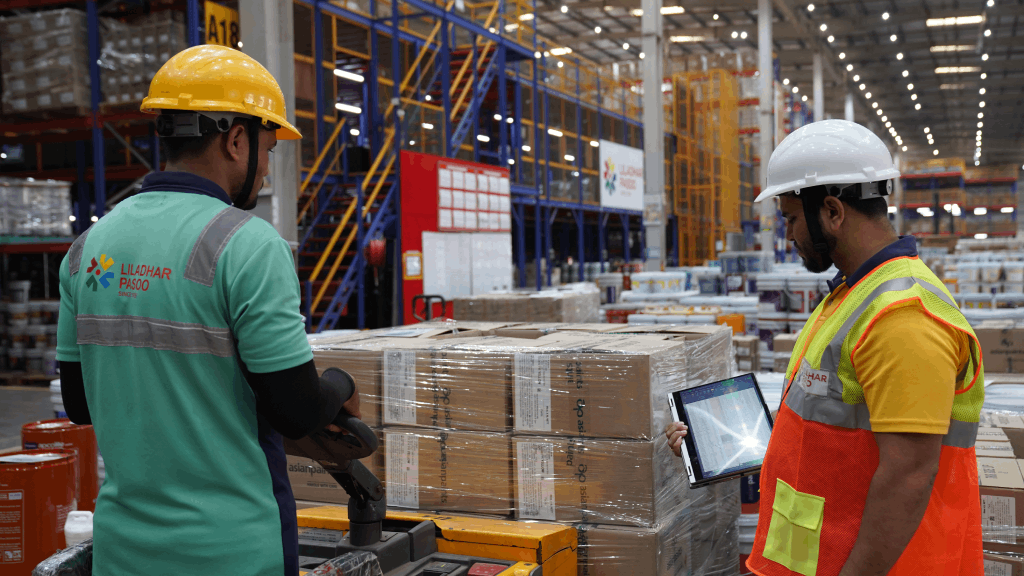The size of the chemicals warehousing and storage market globally is forecasted to increase by USD 7327.51 mn growing at a steady rate of CAGR ~ 3.88%. It is predicted that the APAC region alone will contribute a large chunk of ~ 41%. For obvious reasons, the sector is an essential area of business – whether it is the processing of plastic, paints, food production, pharmaceutical business, or be it automobile manufacturing or engineering, the use of chemicals is fundamental. By 2026, the Indian Specialty Chemical market is predicted to double its market share. And in order to store these, you need to have a warehousing partner, with whom your chemistry has to be just right!
Safety First
Storage of specialty chemicals and their safety involves understanding the nature of the product prior to its storage. Warehouses must give utmost importance to understanding how the product would react to multiple circumstances like leakage, heat, fire, water, poor handling, etc. The largest threat to any storage is fire. It is a misunderstood fact that the storage of chemicals is dangerous. If the right precautions are taken with the correct infrastructure as per the guidance of the fire department the threats can be largely minimized. It would be quite important to understand that storing cotton T-shirts without a good firefighting mechanism is more dangerous than storing specialty chemicals. By the nature of cotton T-shirts, they can catch fire faster than a packaged specialty chemical if there is an ignition source near the product. It is, therefore, necessary to choose a warehousing partner who has a robust and full proof SOP for creating infrastructure and storage that is safe for various kinds of specialty chemicals. In fact, your warehouse partner should be well-versed with the MSDS (Material Safety Data Sheet) of each of the products, which informs about the sensitive details of material handling and storing. Some of the infrastructure-related guidelines that one should look at are as follows:
- National Building Code laid down by the GOI should be kept as base guidelines for the entire building & safety system design and implementation
- Only flameproof and PESO-approved electrical fittings with FRLS wiring in the premises to eliminate all ignition sources
- ESFR Sprinklers to ensure adequate water spray in case of a sprinkler burst.
- A bleed line system to ensure that if there is any kind of chemical leakage and gets mixed with water then this contaminated water only travels through the bleed line for safe collection in containment tanks and disposal thereof
- Water Storage for adequate firefighting for up to 3-4 hours to ensure that there is enough water until the firefighting department arrives, in case of an emergency
- Insulation throughout the warehouse to ensure a low temperature is maintained vis-à-vis the external environment.
- Beam detectors, heat detectors & smoke detectors to ensure early intervention
- Global standard lightning arrestors to ensure building safety even if lightning strikes
- Anti-static mats
- Flameproof air-conditioning systems
- Adequate ventilation of at least 6 air changes per hour
After the infrastructural safety, then comes the expertise in operating the safety systems of the warehouse. Your warehouse partner needs to ensure that there is a well-trained and expert team that is able to use the safe infrastructure correctly at the time of any untoward incident to ensure human and cargo safety. Incorrect usage of safety systems can increase the risk and multiply the severity of the incident. For example, if there is a sprinkler burst next to a water-reactive chemical (sodium based) , it would add fuel to the fire. One should ensure that your warehousing partner has a robust HSSE (Health Safety Security & Environment) system in place. A list of recommendations is given below:
- Adequate and industry-standard PPE for staff handling goods
- Road Safety – Vehicle checklist, inspection, DG handling & training
- Ensuring that a secure perimeter is established around the warehouse by a 24×7 security staff & CCTV monitoring of the premises is done from a third independent location
- Licences & other compliances necessary for such specialized storage
- Environment safety to ensure no spills/leakages are affecting the ecosystem around us.
Additionally, multiple training methods throughout the year, some of which are:
- Periodic training for staff to handle chemical spills & leakages
- Training staff and regular mock drills for fire safety, evacuation, and other operational drills
- Training a first aid team of responders who are trained by doctors
- Training our MHE (Material Handling Equipment) drivers to drive safely
- Joint training exercises done with the Local Fire Department so even they are well versed with the infrastructure available on site
Other Important Features
While safety is of utmost priority there are some important features that you should look at in your warehousing partner:
Do they have a Business Continuity Plan in place for you?
In case of an incident and the facility is not operational for some time, then in order to ensure that your business does not suffer:
- Adequate space at multiple warehouse locations in the same city for any contingencies
- Maintaining data in the cloud to ensure the business is continued from any location
Do they offer value-added services and have robust capabilities?
Some perks will help here, for example:
- Chemical blending: You may be selling customized blended products. A warehouse partner who can do this work for you, as per your standards, would be desirable
- State-of-the-art storage systems: heavy-duty pallet racking system for customised storage solutions enhances flexibility, accessibility, and output
- Hazardous Chemical Storage: Some chemicals are volatile and potentially hazardous. These would require special care and a specially trained workforce to handle this. Your warehousing provider should be able to handle these requirements as per GOI norms and industry standards
Conclusion
Chemicals and Speciality Chemicals storage can be a complex subject if your warehousing provider is not familiar with them. Hence one should look for providers/partners who have adequate experience. In a high-risk environment, a partner who has the right chemistry with you and whom you can trust, becomes extremely important.







